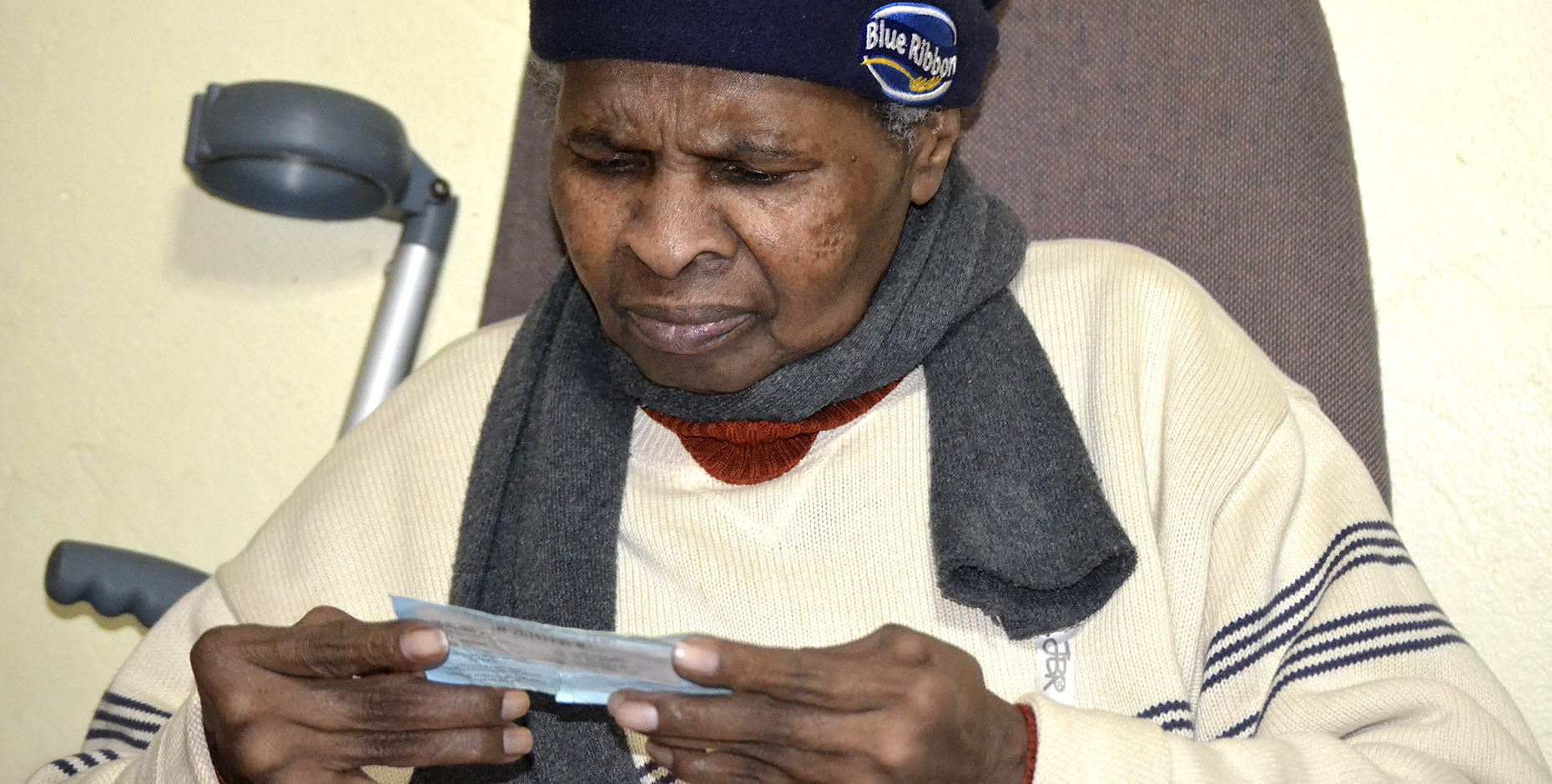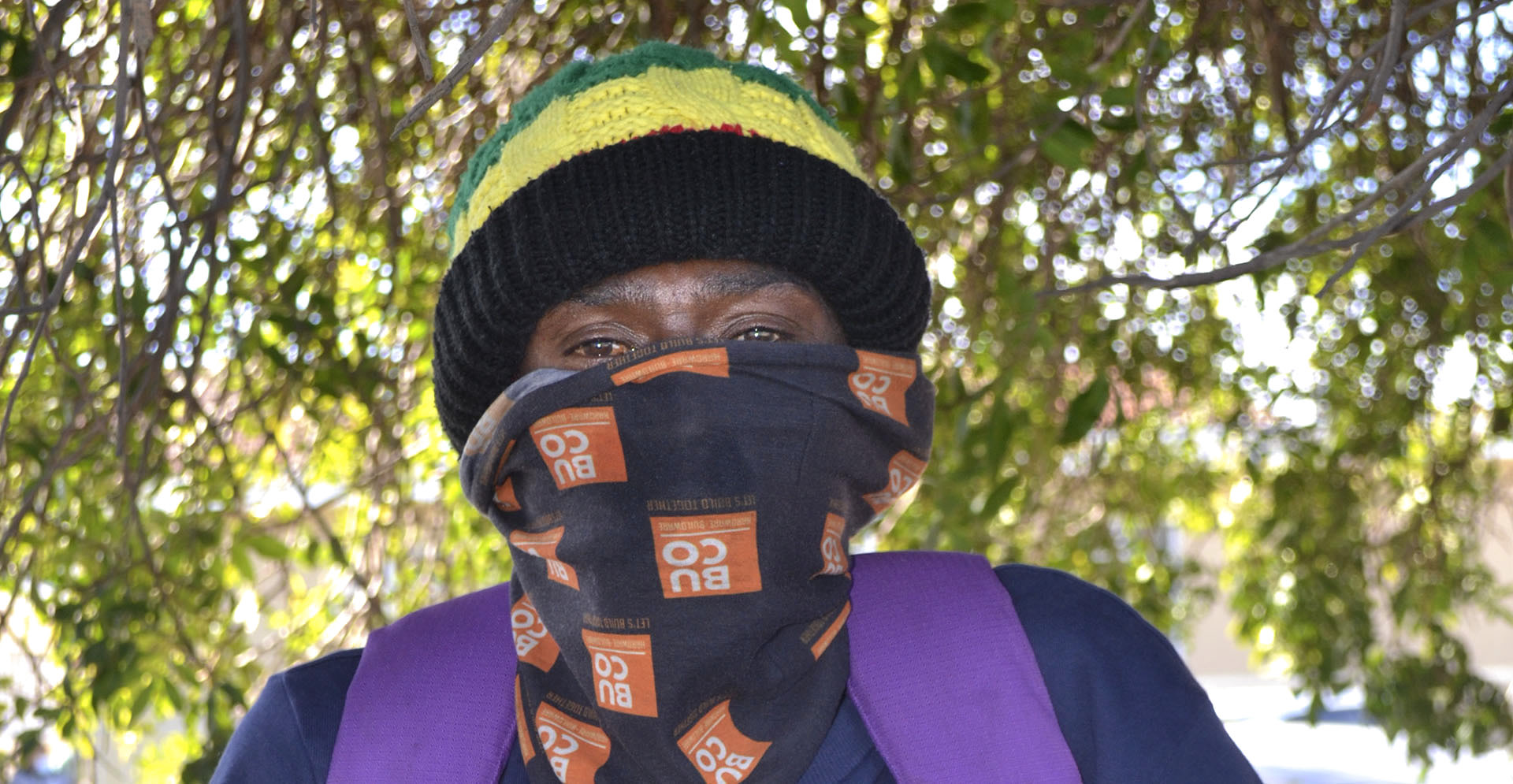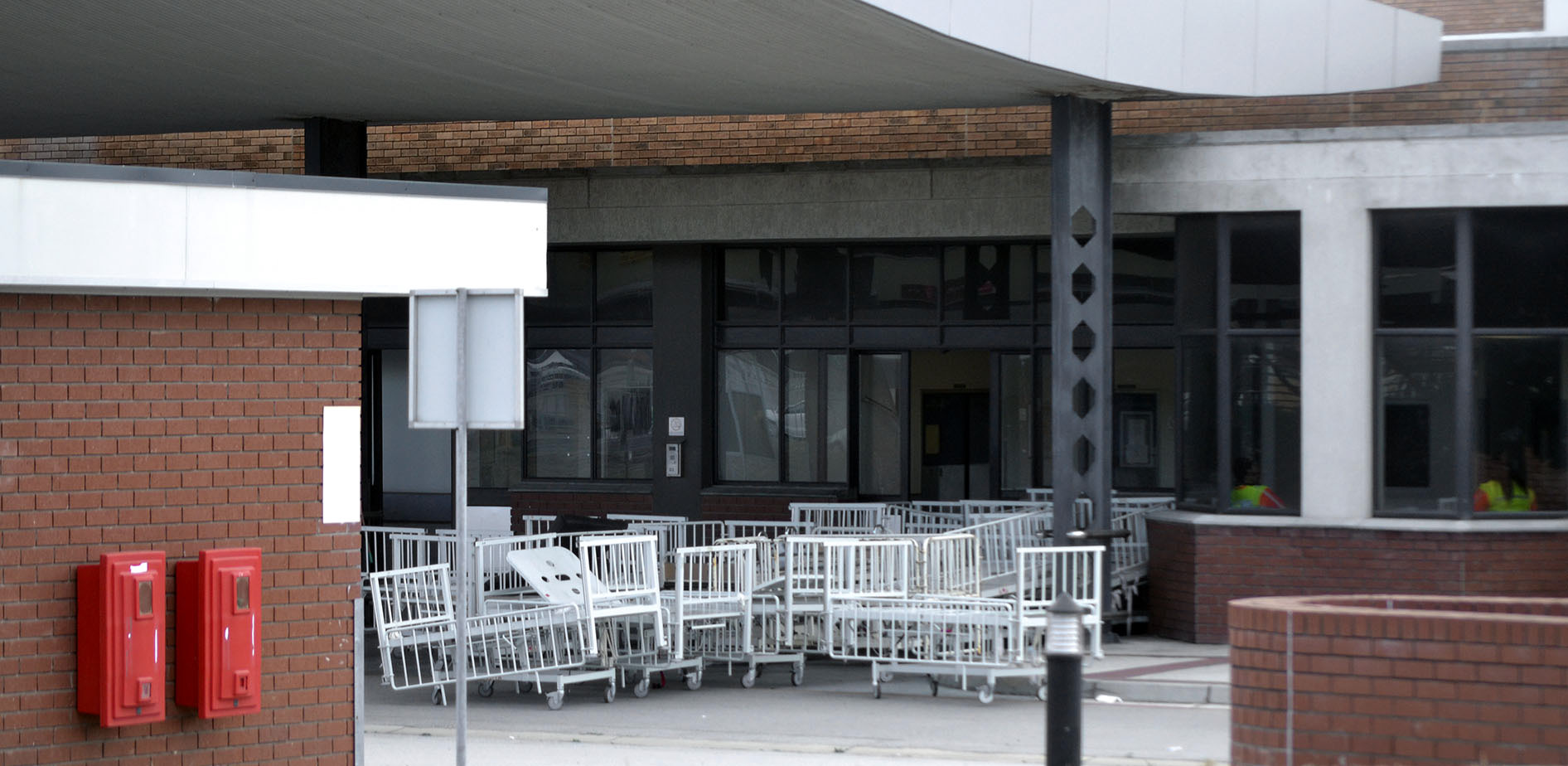SPOTLIGHT
Strong medicine: Community perspectives on the health services in the Eastern Cape
‘Things are worse at Dora Nginza Hospital, where I take my arthritis treatment. A patient can even die in that hospital while waiting to be seen by a doctor.’
After damning findings on the conditions of some Eastern Cape hospitals, the Deputy Public Protector recommended several changes the provincial health department had to implement within 60 days. The report was published on 30 June. Halfway through the 60 days, people still have mixed feelings about their hospital visits and the provincial health department has little to say about what it has done to implement the recommended changes.
Nophumzile Daza, who receives chemotherapy at Livingstone Hospital and gets arthritis treatment at Dora Nginza Hospital, blames staff shortages as the root cause for poor service delivery in both hospitals.
“Challenges faced at Dora Nginza and Livingstone Hospitals range from staff shortages to poor communication with patients,” says the 66-year-old. “[Sometimes] in the chemotherapy section at Livingstone Hospital [the] service is excellent. They will [serve] patients with speed without any delay. Sometimes when they are not in the mood, they will take forever to assist patients and no one will bother to inform patients why there is a delay,” says Daza.
“Things are worse at Dora Nginza Hospital, where I take my arthritis treatment. A patient can even die in that hospital while waiting to be seen by a doctor. In June, during my appointment, I spent the entire day on the chair waiting to be seen by a doctor. When you are done with the consultation, you will literally park at the outpatient pharmacy.
“In the pharmacy they have no efficient system in dealing with dispensing medication. Patients in that pharmacy wait about two to three hours for their prescription. It is too much for sick people to wait that long to get medication. Initially, my treatment was supposed to be sent to my local clinic, but every time they tell me my medication has not arrived. This angers me most, especially after having travelled to the hospital.”

Nophumzile Daza blames staff shortages as the root cause for poor service delivery in hospitals. (Photo: Luvuyo Mehlwana/Spotlight)
Deputy Public Protector’s findings
In a report released at the end of June, the Deputy Public Protector, advocate Kholeka Gcaleka, found that allegations that the administration of health by the provincial health department at Livingstone Hospital “does not accord with the obligations imposed by the Constitution and the law is substantiated”. The report found that some of the reasons for the state of affairs at Livingstone were acute staff shortages and inadequate infrastructure.
Livingstone Hospital forms part of the Port Elizabeth Provincial Hospital Complex that caters for patients from Nelson Mandela Bay and the Sarah Baartman District. The hospital has been operating without a permanent CEO since 2017 after Thulane Madonsela left the institution.
The Public Protector team did not visit the Dora Nginza Hospital.
From pillar to post
At the Port Elizabeth Provincial Hospital, a frustrated Xabiso Phandle (35) from Port Alfred is at the hospital for his heart condition. Phandle believes that public healthcare will improve when the department of health improves the competencies of its employees.
“I was forced to go back home to Port Alfred without being attended to because of poor communication between the staff of Port Alfred Hospital and the provincial hospital in Gqeberha. I was turned away because I didn’t have Covid-19 test results. I was told that people from outside Nelson Mandela Bay need to bring results during their appointments, but in Port Alfred, they are not aware of that.
“I was tested at Port Alfred Hospital before I left for my second visit to the provincial hospital. I was told my results will be sent to the provincial hospital. To my disappointment, staff at the provincial hospital turned me back, saying there was no record of my results.”
Port Alfred is more than 150km from Gqeberha.
“This lack of coordination between the two hospitals frustrated me, given that I had travelled all the way from Port Alfred just to be told that I won’t be served. I slept on uncomfortable hospital chairs the entire night hoping the results would arrive the following day,” he tells Spotlight. “This is despite travelling from Port Alfred to Port Elizabeth with government-provided patient transport. Patients have to sleep at the hospital to catch the transport that departs as early as 6am. Patients have to provide their own food as the hospitals do not supply it.”
The Public Protector report also found Livingstone Hospital, which includes the Port Elizabeth Provincial Hospital, had a fully automated multimillion-rand kitchen facility at the hospital which would benefit all patients, but this kitchen has not been used since it was installed in 2010.

Xabiso Phandle from Port Alfred, Eastern Cape, in the Sarah Baartman region says he knows the pain of sleeping in hospital chairs due to poor services. (Photo: Luvuyo Mehlwana / Spotlight)
Losing confidence in the system
Another patient, aged 59, who does not want to be named, receives treatment for an eye condition at the PE Provincial Hospital. He cites similar challenges and says people who have appointments often don’t experience any difficulties when it comes to services. He says it becomes a problem when a patient has been referred from a local clinic to the hospital.
“Once you become a regular patient, services move smoothly, but sometimes you do find incidents where nurses are rude. I was once forced to go back home without being attended to because the nurse was rude. I almost lost confidence in the health system because of the mistreatment I received from the hospital staff.
“Sometimes some nurses talk to patients as if we are their children. The situation becomes worse if a patient misses [an] appointment. In order to gain our confidence, the hospital management should teach their nurses how to deal with patients in a bid to improve their services,” he says.
Praise and concern
At Uitenhage Hospital, Makhaya Kuzwayo, whose daughter suffers from cerebral palsy, praised the services of the hospital. His daughter has been a patient at the hospital for the past 15 years.
“I don’t have any complaints about waiting time at the facility, but I’m worried about their slow pace of ordering wheelchairs,” he says. “I can’t even remember when I ordered a wheelchair for my kid. I’m still waiting. My only concerns are if the wheelchair that we applied for will fit my daughter when it finally arrives. She needs a specialised wheelchair because the one she has is worn out.
“I’m surviving with piece jobs. I can’t afford to buy her a new wheelchair. I took it upon myself to go to local businesses and ask them to donate a wheelchair because the hospital takes too long to order wheelchairs,” said Kuzwayo.
Uitenhage Hospital is also among the hospitals the Deputy Public Protector visited in August last year. In her report, she found that the department “has failed to ensure appropriate conditions for the enjoyment, delivery and access to adequate as well as effective healthcare services for the community around Uitenhage”.
No clear plan, no change
According to Treatment Action Campaign Provincial Deputy Chairperson Thembisile Nongampula, the provincial health department “has no clear plan to turn around its services because they have managers who don’t have a vision”.
“There has been an issue of shortage of staff for a long time,” says Nongampula, “and district managers and hospital chief executive officers are not prioritising hiring more staff to plug the gap left by nurses who either died or left the profession. This is why you will find that it takes long before patients visiting our health facilities are assisted. For the way forward, the department needs to engage all health stakeholders to tackle these problems.”
South African Federation of Trade Union Regional Secretary Mzikazi Nkata tells Spotlight issues around improvement after the Deputy Public Protector’s visit are very tricky because their members who are healthcare workers are still complaining.
He says these visits are not only window dressing but create false hope among people that things will get better.
“There is no change in our facilities at all. Shortage of staff is still there and PPE [personal protective equipment] shortages. The supply of PPE is inadequate in some hospitals, which place [healthcare workers] in danger of contracting Covid-19. Staff members complain that sometimes one person is doing the work of three to five people and in the process, patients are neglected,” Nkata says.
“We are no longer told by the department who has tested positive for Covid-19 among staff members. Even people who are dying after receiving their Covid-19 vaccination – no one is telling us anything about those deaths. All we are asking for is transparency so that we know how to work together going forward,” she says.
When approached for comment, provincial health spokesperson Sizwe Kupelo said, “Many issues raised in the [Public Protector] report have been dealt with. The issue of vacancies is being addressed as we are filling critical posts. Recently, the Treasury helped the department to keep the Covid-19 contract workers for a further five months. This will go a long way in ensuring we treat those that have been hospitalised while ensuring nurses and doctors do not work longer hours, which leads to fatigue and burnout.
“We have said it before that had it been up to us we would love to fill all vacancies and correct our shortfalls, but our budget constraints make this difficult.”
Kupelo, in an earlier statement, said the department had extended the contracts of Covid-19 appointments for a further five months and the fixed-term contracts of 55 employees for the Cecilia Makiwane Hospital’s newly built 100 beds had been extended until 31 March 2022. That means a total of 3,004 posts filled.
Kupelo did not respond to follow-up questions requesting more detail. Spotlight will also be putting some of these questions to newly appointed Eastern Cape Superintendent-General for Health Dr Rolene Wagner. DM/MC
Note: A representative of the TAC is quoted in this article. Spotlight is published by SECTION27 and the TAC but is editorially independent, independence that the editors guard jealously. Spotlight is a member of the South African Press Council.
This article was produced by Spotlight – health journalism in the public interest.






















 Become an Insider
Become an Insider
Not the only province in dire (health) straits and I sadly doubt the system can be fixed; in the foreseeable future.
🙁